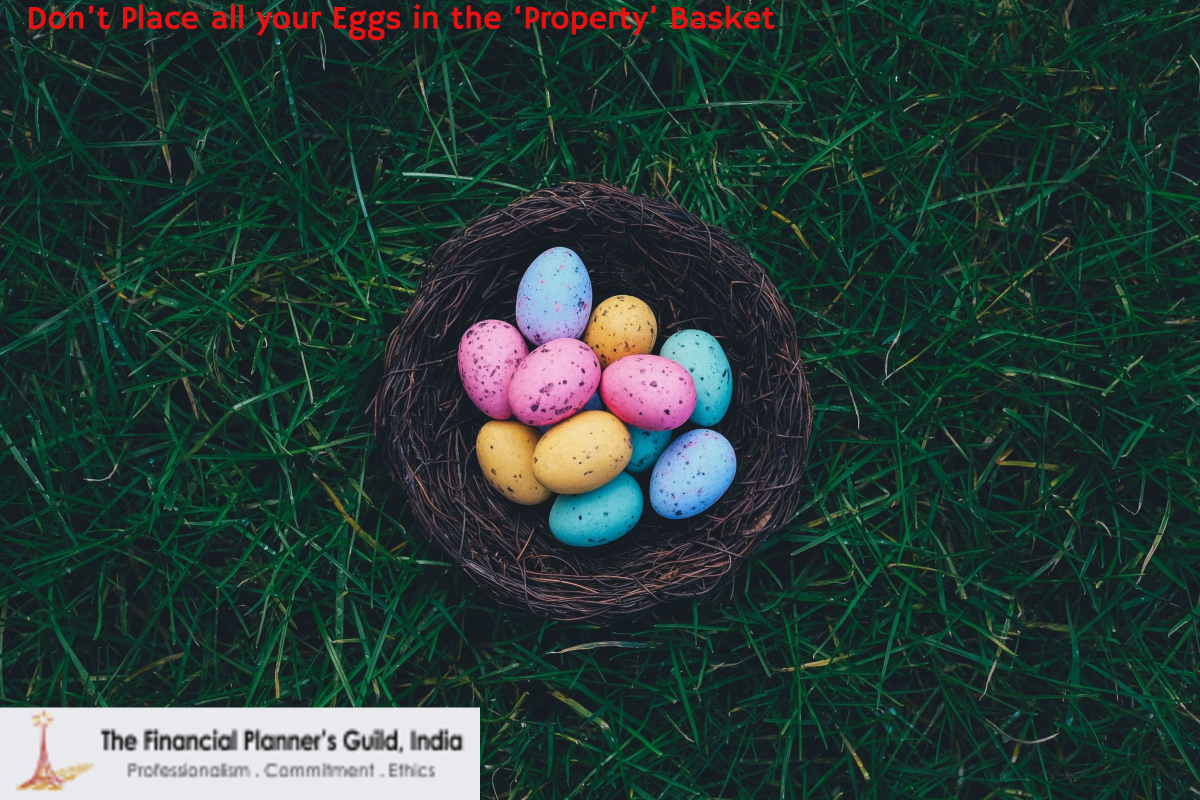
In September this year, I met Deepak and Saloni – a DINK (double income, no kids) couple – who wanted my financial planning services. This young couple earned well, but had parked all their investments in one asset class – property. They had a portfolio of five houses, a term plan, a mutual funds portfolio worth a few thousands and some shares. We started discussions 0n financial planning. By the time I visited them again – in October – they had added one more property to their list.
I had another interaction with a couple in their forties with a similar story – they too had parked all their investments in property. Four, to be precise. The rest of their money lay in their savings account.
A recent email from a client mentioned that “I am also actively considering investing in real estate – sometime after July next year by re-allocating funds from the MF portfolio… as real estate tends to provide the best long term appreciation.”
We have been taught to ‘invest in property and LIC policies, as their value never goes down and will always fetch you positive returns’.
In the cases I have listed above, and plenty more, property is only investment asset class. There seems to be a craze for buying property so much so that we tend to lose focus on all other forms of investments. This has been further ‘confirmed’ by the boom in real estate over the past 7-8 years.
Disadvantage of investing only in property:
Now, I am not implying that real estate is a bad instrument for investment. But it becomes dangerous when it is the only asset class that one invests in. Here, of course, I should mention that the ‘first house’ (which is bought for the purpose of residence) is not being included assuming that it is not for resale.
With the ‘pressure’ created by real estate brokers and builders that the rates are going up every day, lay investors fall for the trap, thinking that it is now or never. With property prices sky-rocketing across urban and semi-urban areas, larger chunks of money are required to fund even the down-payment. For a salaried person, this may not always be easy.
A number of investors fall for the “initial payment of 10 percent only” trap. Without even calculating how they will service the balance down payment and subsequent equated monthly instalments (EMIs), people rush in in the hope of making a quick buck. They often sell-off the booking when the second instalment becomes due. This is a gamble which could go seriously wrong.
With financial planning and proper management, you can own your dream house.
A few points that one should keep in mind before investing only in property:
One should have a robust, diversified and liquid portfolio, to ensure sufficient liquidity before ‘investing’ in property.
People should carefully plan their investments to meet their goals in an organised and structured manner with due importance to asset allocation. Putting all the eggs in to one basket could lead to severe consequences.
FPG India ©2024. All Rights Reserved.
Designed & Developed by W3M Technoz
Comments are closed.